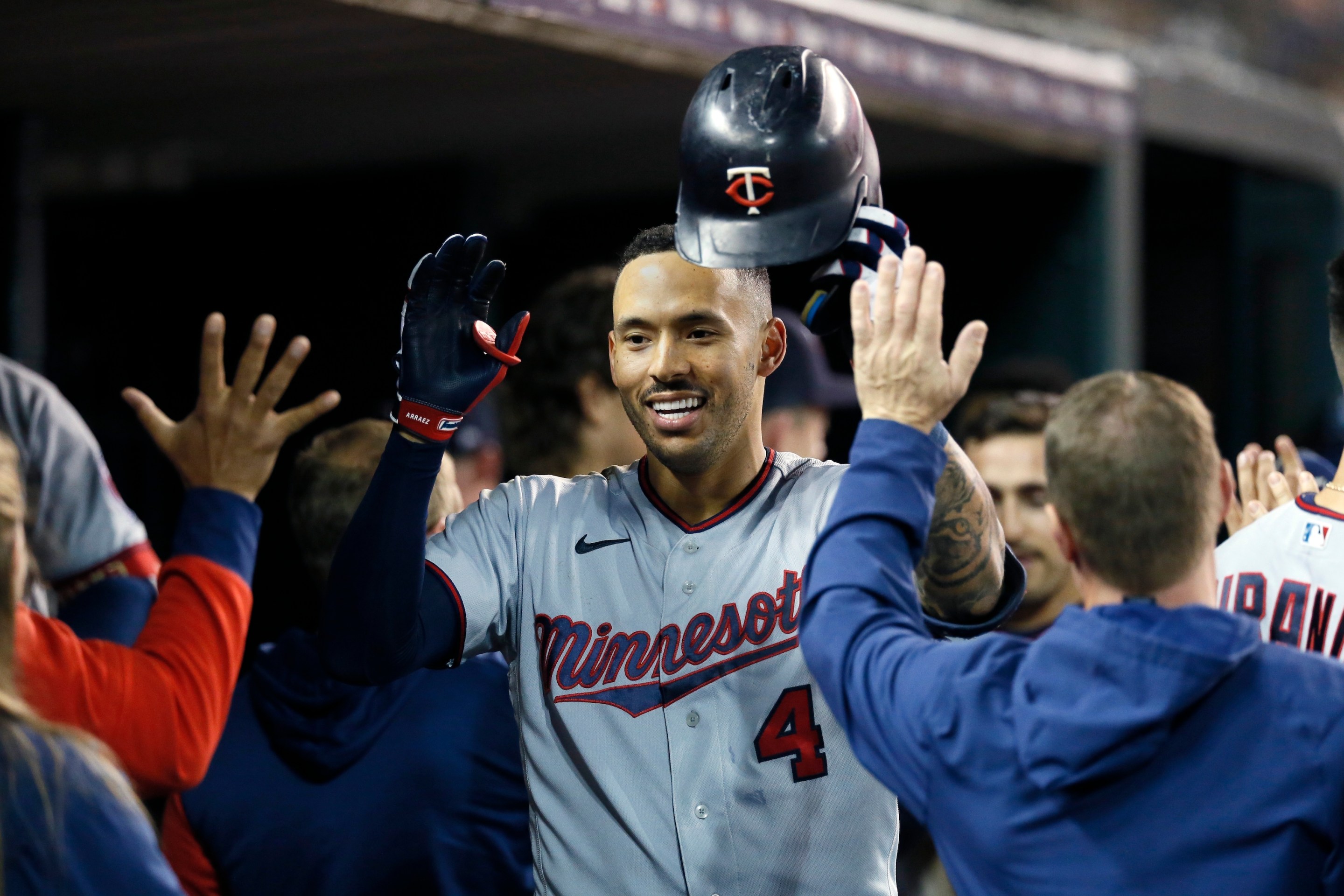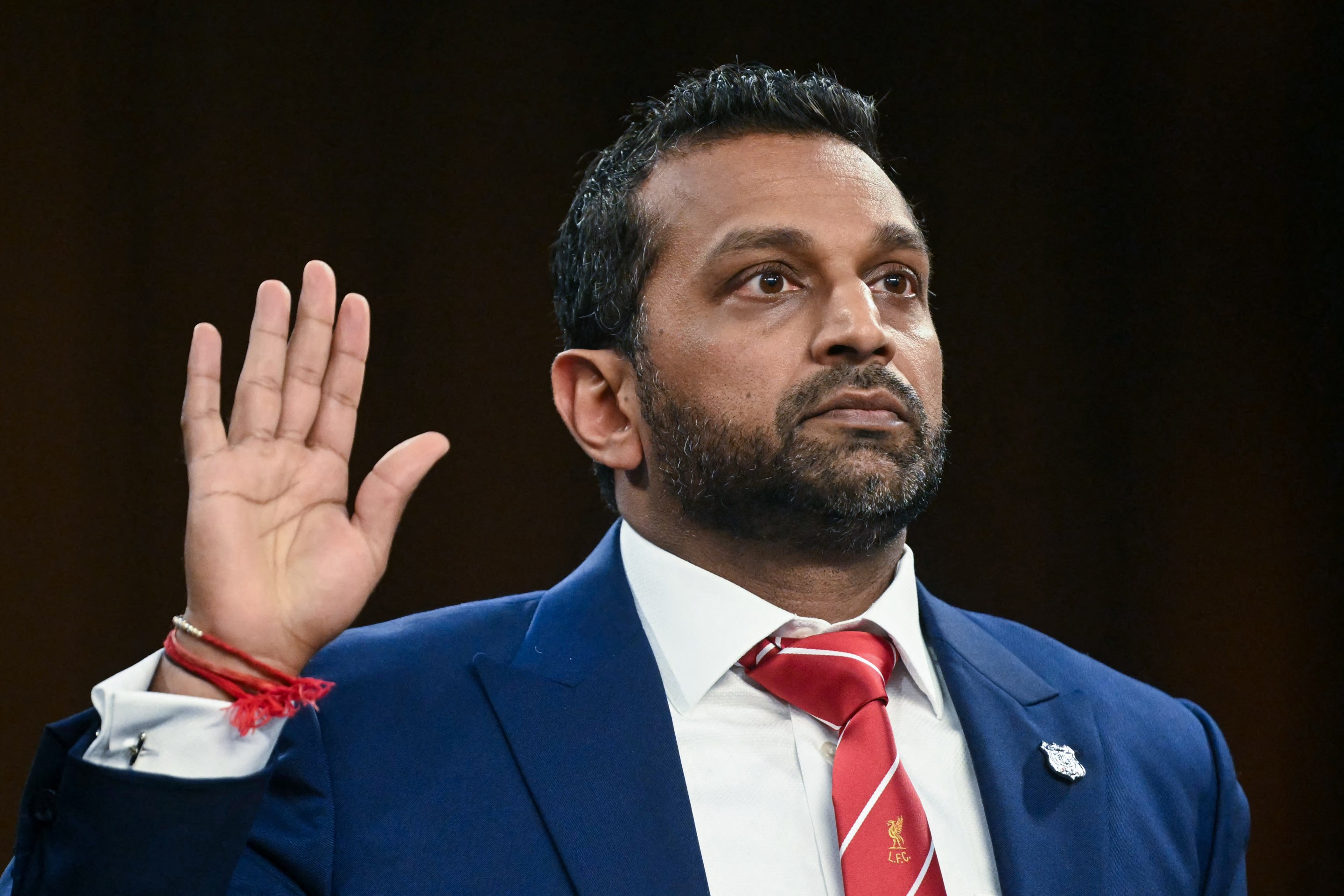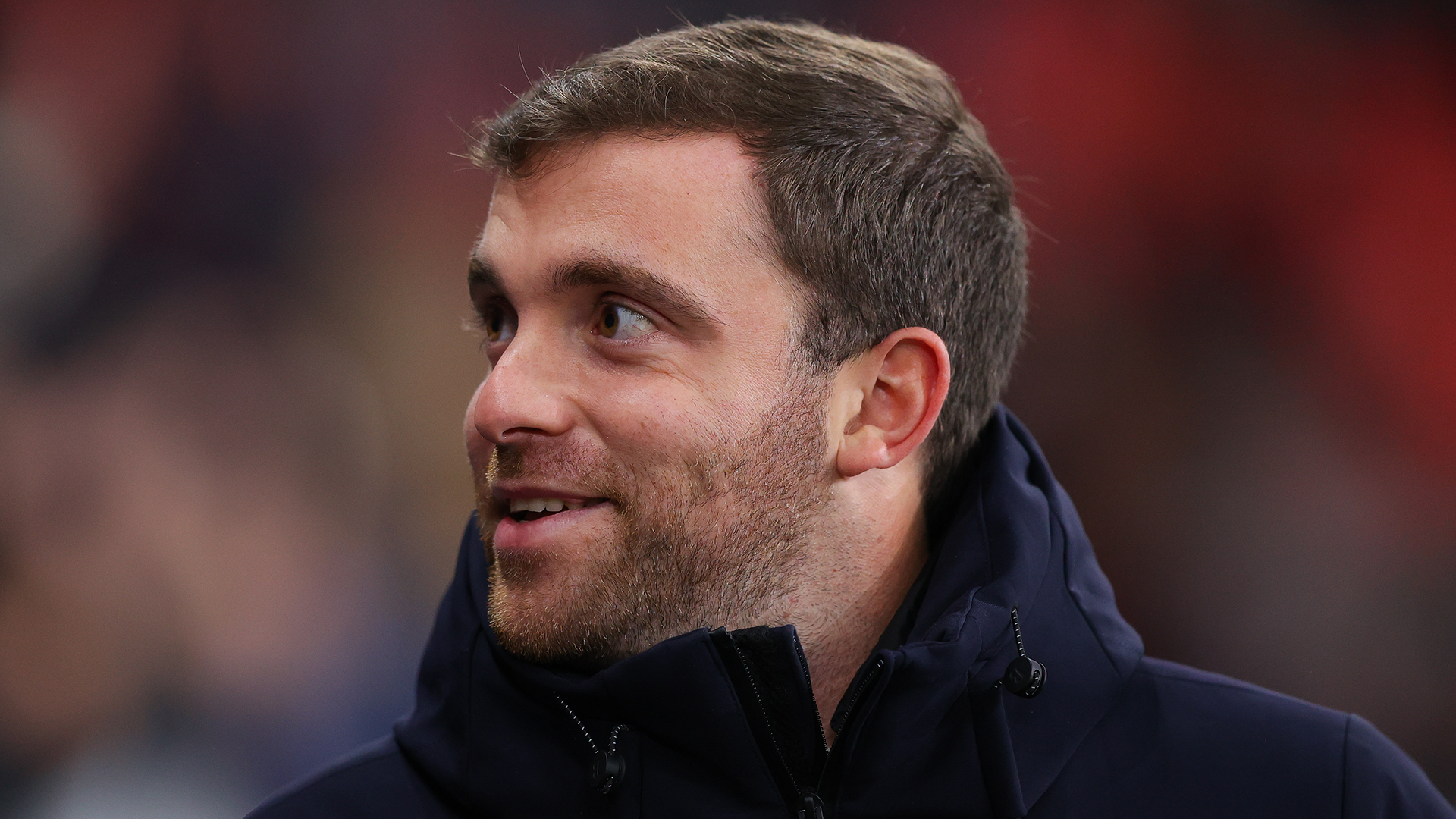Carlos Correa agreed to three different contracts this offseason, each smaller and shorter than the one before, although only the last one—the six-year, $200 million one he signed with the Minnesota Twins on Tuesday afternoon—is going to count. That there were other, bigger contracts that he very nearly but did not actually sign is probably not something that anyone will think about very deeply or very often once this offseason ends, and probably at all unless and until his suspect ankle does what at least two other teams feared it would do.
When the offseason ends, Correa will be back with the Minnesota Twins, the team with which he signed a three-year deal last winter, and then left when he opted out of it after one typically productive campaign. That Correa didn't sign the 13-year, $350 million deal that he agreed to with the San Francisco Giants in December, or the 12-year, $315 million one that he agreed to with the New York Mets shortly after that, is not going to matter because he won't be playing for either of those teams, and because those teams will have other players at those positions.
That all of those non-occurrences persisted in not happening over the course of a strange month of officiously worded industry gossip and strained silence will be something that comes to mind at least on occasion. I fully expect to watch one of the lesser players that the Mets will run out at third base next season—ones I was perfectly happy and even excited to watch until just a few days before Christmas—and think first about what it might have been like to have Carlos Correa doing it instead, and then to think progressively less sophisticated things until I am barely having thoughts at all. I know how this works, and I know that what begins with "having Carlos Correa at third would have locked in an elite left side of the infield for the better part of a decade, which is the definition of 'a thing worth paying for' if you're a baseball team" to "I hope the Mets win" to "what Mets do" to, finally, the slurred looping "Met'ss" that replaces my other thoughts during the baseball season. Time marches on; you get used to Eduardo Escobar, and get used to telling your friends at games about how much Escobar loves the Brazilian steakhouse chain Fogo de Chao, and get used to them telling you that you have already told them about that. At some point the fact that Carlos Correa almost played for their baseball team, for a decade, is something that both Giants and Mets fans will stop thinking about.
For the time being, though, and with apologies to the Twins' return to competitiveness in the AL Central, the "almost" is the most interesting thing, here. It is likely that, had Correa not been quite as forthright after leaving a September 20 game following a fluke play on a slide, one of the things that almost happened might have happened instead of the thing that did. Correa has missed a decent amount of time with injury in his career, but never because of the thing that reportedly tanked his contracts with both the Giants and the Mets. That injury, to his lower leg, dates back to when Correa was a 19-year-old with High-A Lancaster; the metal plate he had inserted in his fibula as a result of that injury has held up so well that it didn't become an issue until last season, when Royals infielder Michael Massey tagged him right on it. "He just hit my plate," Correa said afterwards. "I had surgery, and he hit it. Just kind of felt numb. Vibrating. So I was just waiting for it to calm down. It was a little scary, but when I moved I knew it was good." Correa was back in the lineup the next day.
But metal surgical plates have life spans of their own, and baseball teams have risk assessments of their own regarding that sort of thing, and the companies that insure baseball contracts have their own actuarial estimates about how long surgical plates qualify as a risk worth taking, and the confluence of all those concerns—all of them, still, abstract—seems to have been what undid Correa's chance at the sort of decade-and-change contract that free agents like Aaron Judge and Xander Bogaerts and Trea Turner received this offseason. On the merits, and when viewed as a baseball player, Correa is every bit as likely to be good for another 10 or 12 years, or anyway no less likely to be worth big money at age 40 than Turner or Bogaerts. This is why both the Giants and the Mets tried to sign him to that type of contract.
That it didn't work out, in either case, is down to the fact that these decisions are not reached entirely on those merits. For a variety of reasons, some having to do with baseball concerns and the way baseball's de-facto luxury tax is calculated and others having to do with present interest rates and, presumably, the sort of actuarial assessments that make some baseball contracts easier to insure than others, teams have shown that they value this sort of risk differently than they used to. Compared to the players that have received these sprawling free-agent contracts, Carlos Correa is every bit as likely to deliver a return on investment—provided that he's viewed as a baseball player. When he is, inevitably, reconsidered as an asset, things get more complicated. Correa could always downshift from shortstop to third base as his mobility diminishes; the Mets planned to play him there from the jump. But if an insurance company decides that the plate in Correa's fibula will be out of warranty and therefore uninsurable, a team will have a more difficult time adjusting on the fly.
The ambiguity and uncertainty of the last month makes a bleak sort of sense if you assume that Correa's contract with the Twins is roughly coterminous with the remaining insurable years on that surgical plate. The deal that Correa wound up not signing with the Mets reportedly included a six-year guarantee, but then became conditional on other factors, including Correa passing an annual physical, in each of the last four years of the contract; the deal he signed with the Twins guaranteed him an extra $42.5 million over the course of the guaranteed years, and features the sort of risk-mitigation clauses that the team built into its deal for their much less abstractly injury-prone star Byron Buxton. I think you will agree that this is all "some extremely offseason stuff"; sitting in the dwindling light of the late afternoon, considering the actuarial probabilities and calculating various possible outcomes is just what a baseball fan would do if there was no actual baseball to watch.
On the merits, the Mets had one of the busiest and quite possibly one of the best offseasons of any MLB club, and this is probably still true even though they failed to add Carlos Correa to the left side of their infield until the preposterously science fiction–ass year of 2034. But what was fun about the Mets' offseason was not just how much money the team spent on free agents, which was much more than any other team spent, but how they spent it. The Mets kept cornerstone players like Brandon Nimmo and Edwin Diaz, and replaced one aging mega-ace with another in swapping out Jacob deGrom for Justin Verlander, while also using the free market to plug the gaps in the big-league roster that their farm system was not yet ready to fill. It only looked heedless; the team was simply spending in the near term until that system was ready to produce the sort of young stars who, underpaid by design as they are, represent the sport's most valuable long-term assets.
If Correa represented a departure from that plan, it seemed like a justifiable one not just for the Mets, but for any team—there are only so many players on earth like Carlos Correa, and only so many chances to add one at the cost of nothing but money. The team's spin, after losing Correa to the Twins has been that this is all fine, because signing Correa was a luxury and not a necessity, and that at any rate the plan remains in place. This can be true without really being satisfying. What was fun about the Mets' offseason, once it entered its baroque period when owner Steve Cohen and Scott Boras agreed to the Correa deal extremely late at night a few days before Christmas, was that it seemed to have sloughed off that sort of risk-mitigation in favor of something much more like Just Going For It Regardless.
And so a big part of what's dispiriting about that deal falling through, beyond not getting to see Correa line up alongside Francisco Lindor for the next decade, is the extent to which it represents the triumph of those familiar concerns over that much-less-familiar will to try to win a damn World Series. The teams that didn't sign Correa succeeded in mitigating some risk and nothing more; the Twins have Carlos Correa. The former is the sort of thing that front offices celebrate much more readily than fans. In the gray light of the offseason, both make sense. In the summer sun, what's missing will be much easier to spot.






